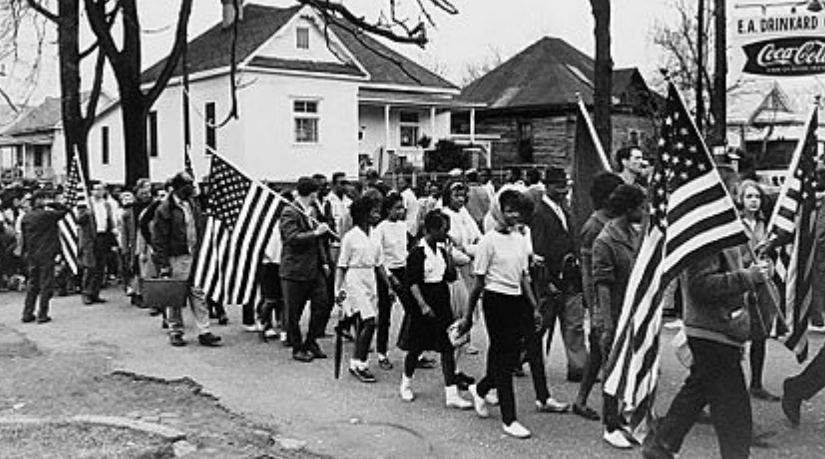True or false: black people and white people had equal rights once slavery ended
False
True or false: African Americans faced major racism in the 1950s and 1960s, especially in the South.
True
The goal of the Civil Rights Movement was to gain ________ rights for African-Americans.
Equal
True or false: it was legal in the 1950s for black children and white children to go to different schools (segregation).
True
One major goal of the Civil Rights Movement was ending segregation. What is segregation?
Separating people by their race.
This photo shows civil rights activists marching from Selma to Montgomery, AL. What famous civil rights leader lead this march?
Dr. Martin Luther King
The Civil Rights Movement is famous for non-violent protests. What does "non-violent" mean? What is a protest?
Non-violent mean peaceful (no fighting or destroying property).
A protest is a public expression to show you are against an idea or action (typically a political one). Examples include marches, sit-ins and boycotts.
True of False: Police officers in the 50s and 60s often helped people in the Civil Rights Movement
False
One way that civil rights activists protested discrimination was by boycotting. A famous example of this is the bus boycott that happened in response to Rosa Parks’ arrest. What does it mean to boycott something
To refuse to deal with a store, person or organization to show your disapproval.
One reason inequality continues in our country is because people in power get voted in and continue to make racist laws. Why is having the right to vote so important, especially to minorities?
So they can vote for leaders who promote equality